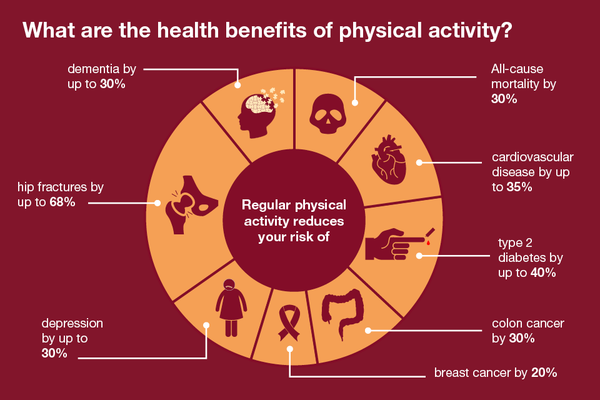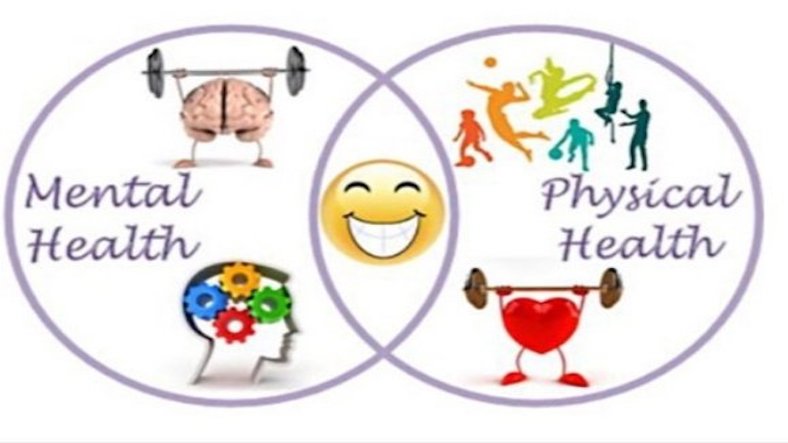Understanding Mental Health
Table of Contents
What Is Mental Health?
Mental health refers to your emotional, psychological, and social well-being. It influences how you think, feel, and act in everyday life. It also affects how you handle stress, relate to others, and make choices. Good mental health doesn’t mean feeling happy all the time but being able to manage emotions effectively and maintain resilience in the face of challenges.

Importance of Prioritizing Mental Health
Your mental health impacts every aspect of your life, from relationships to productivity. When you neglect it, you may notice a decline in energy levels, difficulty concentrating, and increased irritability. On the other hand, taking steps to nurture mental health can lead to improved mood, clearer thinking, and a greater sense of fulfillment.
Common Factors Affecting Mental Health
Several factors can influence your mental health:
- Biological factors like genetics or brain chemistry
- Life experiences, including trauma or abuse
- Social factors such as loneliness or financial stress
Understanding these factors is the first step toward managing and improving your mental well-being.
The Connection Between Lifestyle and Mental Health

How Lifestyle Choices Impact Mental Well-Being
Your daily habits can either support or undermine your mental health. For instance, regular physical activity, balanced nutrition, and adequate sleep can significantly enhance mood and energy levels. Conversely, poor habits such as excessive screen time or skipping meals can exacerbate feelings of stress and anxiety.
Signs That Indicate You Need a Lifestyle Change
Pay attention to signs like chronic fatigue, lack of motivation, or feelings of hopelessness. These could indicate that your current lifestyle is not conducive to mental wellness. If these signs persist, consider integrating healthier practices into your routine.
Morning Practices for Mental Health

The Power of Morning Routines
Starting your day with intention sets a positive tone for the hours ahead. A structured morning routine can reduce stress and enhance focus. Include practices like stretching, setting goals, and savoring a nutritious breakfast to kickstart your day.
Mindful Breathing Exercises
Spend five minutes each morning practicing deep breathing. This helps to calm your mind, lower cortisol levels, and prepare you for the day’s challenges. Try inhaling for a count of four, holding for four, and exhaling for six.
Journaling Your Thoughts
Journaling in the morning is a therapeutic way to organize your thoughts and emotions. Write down three things you’re grateful for or set an intention for the day. This practice helps foster a positive outlook and reduces mental clutter.
Daytime Practices to Stay Grounded
Practicing Gratitude Throughout the Day
Gratitude is a powerful tool for improving mental health. Take moments during the day to acknowledge the good things in your life, whether it’s a kind word from a coworker or a sunny afternoon.
Staying Physically Active
Regular exercise is not just for physical fitness—it’s also essential for mental health. Activities like walking, yoga, or dancing release endorphins, reduce stress, and improve overall well-being.
Connecting with Others
Human connection plays a significant role in mental health. Reach out to friends or family, join a community group, or volunteer. Meaningful interactions can combat feelings of loneliness and boost happiness.
Evening Practices to Unwind
Digital Detox Before Bed
Reduce screen time at least an hour before bedtime. The blue light from devices can interfere with sleep quality, and too much screen exposure can increase feelings of restlessness and anxiety.
Nighttime Meditation for Relaxation
Meditating for 10 minutes before bed can help quiet your mind and promote restful sleep. Focus on your breathing or use guided meditation apps to help you relax.
Setting a Regular Sleep Schedule
A consistent sleep routine is crucial for mental health. Aim for 7-9 hours of quality sleep each night, and try to go to bed and wake up at the same time daily, even on weekends.
Nutritional Habits for Mental Clarity
Foods That Boost Mental Health
Your diet plays a significant role in your mental well-being. Certain foods are known to enhance brain function and stabilize mood. Incorporating these into your daily meals can make a noticeable difference:
- Omega-3 Fatty Acids: Found in salmon, walnuts, and flaxseeds, these fats support brain health and reduce symptoms of depression.
- Leafy Greens: Vegetables like spinach and kale are rich in folate, which is crucial for producing mood-regulating neurotransmitters like serotonin.
- Fermented Foods: Yogurt, kefir, and kimchi contain probiotics that improve gut health, which is closely linked to mental health.
- Dark Chocolate: A small piece can help reduce stress by increasing serotonin and endorphin levels.
Making these foods a part of your diet can improve focus, memory, and overall mood.
The Role of Hydration
Dehydration can negatively impact your mental clarity and mood. Drinking enough water throughout the day is essential for maintaining optimal brain function. Even mild dehydration can cause fatigue, headaches, and difficulty concentrating. To stay hydrated:
- Drink at least 8 glasses of water daily.
- Include water-rich foods like cucumbers, watermelon, and oranges.
- Limit caffeine and sugary drinks, as they can lead to dehydration.
Avoiding Sugar and Processed Foods
Excess sugar and highly processed foods can wreak havoc on your mental health. These foods can cause blood sugar spikes and crashes, leading to mood swings and irritability. Instead:
- Replace sugary snacks with fruits or nuts.
- Opt for whole grains over refined carbs.
- Cook meals at home using fresh ingredients to avoid added preservatives.
Incorporating Mindfulness into Your Daily Life

Benefits of Mindfulness for Mental Health
Mindfulness is the practice of being present in the moment without judgment. It’s an excellent tool for reducing stress, managing anxiety, and enhancing emotional resilience. Regular mindfulness practice can:
- Lower cortisol levels (the stress hormone).
- Improve focus and decision-making.
- Increase self-awareness and empathy.
Simple Techniques to Practice Mindfulness
Incorporating mindfulness doesn’t require a significant time investment. Here are some easy ways to get started:
- Mindful Breathing: Focus on your breath for a few minutes whenever you feel overwhelmed.
- Body Scan: Pay attention to physical sensations from head to toe, releasing tension as you go.
- Mindful Eating: Eat slowly, savoring each bite and noticing textures, flavors, and smells.
- Gratitude Journaling: Spend a few minutes each day writing about what you’re grateful for.
These techniques can help you stay grounded and manage daily stressors more effectively.
Managing Stress Effectively
Identifying Triggers
Understanding what causes your stress is the first step toward managing it. Keep a stress journal to track situations, people, or tasks that make you feel overwhelmed. Recognizing patterns can help you take proactive steps to minimize or avoid these triggers.
Using Stress-Relief Tools and Techniques
Once you identify your stressors, implement strategies to alleviate them. Effective tools include:
- Physical Activity: Exercise releases endorphins and reduces stress hormones.
- Deep Breathing: Practice slow, intentional breaths to calm your nervous system.
- Creative Outlets: Activities like painting, writing, or playing music can serve as a therapeutic release.
Seeking Professional Help When Necessary
Sometimes, stress becomes too overwhelming to manage alone. Seeking help from a therapist or counselor is a sign of strength, not weakness. Professionals can provide coping strategies, teach relaxation techniques, and offer a safe space to discuss your feelings.
Self-Care Practices
The Role of Hobbies in Mental Health
Engaging in hobbies you love is a fantastic way to nurture your mental health. Creative or active hobbies help divert your focus from stress and foster a sense of achievement. Whether it’s painting, gardening, or playing a sport, these activities can:
- Boost self-esteem.
- Reduce anxiety.
- Encourage a flow state, promoting relaxation and joy.
Prioritizing “Me Time”
In a world full of responsibilities, carving out time for yourself is essential. Whether it’s taking a walk, reading a book, or enjoying a bubble bath, prioritizing “me time” helps recharge your emotional batteries. Schedule it into your day to ensure consistency.
Celebrating Small Wins
Acknowledging even the smallest accomplishments can boost your confidence and motivation. Whether it’s completing a workout, cooking a healthy meal, or simply showing up for a challenging task, celebrate yourself. Small victories lead to big changes.
The Importance of Routine Check-ins
Tracking Your Emotional Well-Being
Self-awareness is key to maintaining mental health. Set aside time each week to reflect on your emotions and identify areas of improvement. Use a journal or an app to monitor your mood and note any changes over time.
Adjusting Habits as Needed
Life is dynamic, and your habits should evolve accordingly. If something isn’t working, don’t hesitate to tweak your routine. Flexibility ensures that your practices align with your current needs and challenges.
Staying Consistent for Long-Term Benefits
Building Habits Gradually
Start small when integrating new practices into your life. Trying to change everything at once can feel overwhelming and unsustainable. Focus on one or two habits at a time, building on them as they become second nature.
Overcoming Challenges to Consistency
Life can get busy, making it difficult to stick to your routines. To stay on track:
- Set reminders or alarms for key practices.
- Find an accountability partner.
- Be kind to yourself if you miss a day and commit to starting fresh.
The Rewards of Long-Term Mental Wellness
Consistency pays off in the form of better emotional resilience, improved relationships, and a greater sense of purpose. Over time, these practices become ingrained in your life, creating a strong foundation for mental well-being.
Conclusion
Maintaining good mental health is a lifelong journey, but it doesn’t have to be overwhelming. By adopting daily practices like mindfulness, proper nutrition, regular exercise, and stress management techniques, you can create a solid foundation for emotional well-being. Start with small, manageable changes and build consistency over time. Remember, prioritizing your mental health is not a luxury—it’s essential for leading a balanced, fulfilling life.
Take it one day at a time, celebrate your progress, and don’t hesitate to seek help when needed. Your mental health deserves the same attention and care as your physical health, so take the steps today for a brighter tomorrow.
Frequently Asked Questions
Q1: How long does it take to see improvements in mental health with daily practices?
It depends on the individual and the practices adopted. Some people notice positive changes in a few weeks, especially with consistent mindfulness or physical activity. For others, it may take longer. The key is to remain patient and persistent.
Q2: Can poor nutrition really affect mental health?
Yes, nutrition has a significant impact on mental health. Deficiencies in nutrients like omega-3 fatty acids, vitamins, and minerals can contribute to mood disorders, while a balanced diet supports better emotional well-being.
Q3: What are some quick ways to manage stress in daily life?
Quick stress-relief techniques include deep breathing exercises, short walks, listening to calming music, or practicing a brief mindfulness session. Identifying your stress triggers can also help in managing stress proactively.
Q4: How do I start a mindfulness practice if I’ve never done it before?
Start small by dedicating just 2-5 minutes a day to mindfulness. Focus on your breath, observe your surroundings, or try a guided meditation app. Gradually increase the duration as you become more comfortable.
Q5: When should I seek professional help for mental health?
Seek professional help if you experience prolonged feelings of sadness, anxiety, or hopelessness that interfere with daily life. If you have trouble managing stress or coping with challenges, reaching out to a therapist can provide valuable support.










